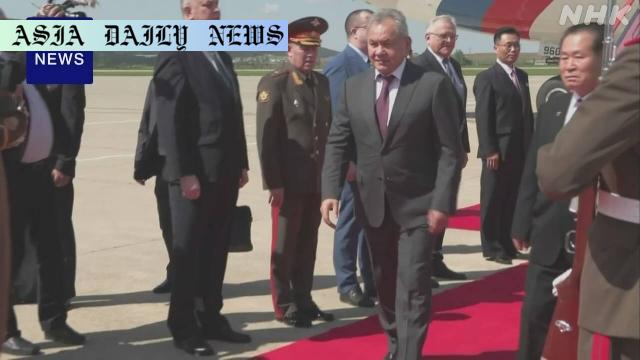Shoigu discusses comprehensive partnership with Kim on bilateral ties and North Korean military involvement in Russia.
- Shoigu visits North Korea to discuss strategic agreements with Kim.
- Talks focus on strengthening Russia-North Korea bilateral ties.
- Potential discussions on honoring North Korean soldiers assisting Russia.
- Observers anticipate updates on Kim’s potential visit to Russia.

Introduction: High-Stakes Diplomacy Between Russia and North Korea
Russia’s state-run TASS news agency recently revealed that Sergei Shoigu, Secretary of the Russian Security Council, arrived in Pyongyang for discussions with North Korean leader Kim Jong Un. This crucial visit, initiated at the instruction of Russian President Vladimir Putin, underscores an essential and evolving relationship between the two nations. With broader implications for geopolitical stability and strategic influence, the context of the meeting touches on various themes: alliances, global diplomacy, military strategy, and regional security updates.
The timing of this meeting is significant as Russia looks to recalibrate its alliances amid the ongoing conflict with Ukraine. Additionally, North Korea represents a strategic partner during turbulent times, especially as both nations face global sanctions and international scrutiny. Observers are keen to see the outcomes of their dialogue, especially with the anniversary of the two nations’ treaty on June 19 drawing closer, acting as a focal milestone in their bilateral dynamics this year.
Focus on Comprehensive Strategic Partnership
The discussions are likely to revolve around advancing a “comprehensive strategic partnership treaty” aimed at bolstering political, economic, and military cooperation further. Both nations have shown intent to deepen such agreements, especially in light of rising adversity from Western powers. Reports suggest Shoigu and Kim will primarily explore options for solidifying frameworks tied to this partnership treaty, including avenues to strengthen economic exchanges and overall defense mechanisms.
Such treaties can shift the balance of power across regions by expanding resource leverage, troop collaborations, intelligence exchange, and countering moves from Western-backed coalitions. Though official documents might take time to finalize, Shoigu’s role signifies intent-driven diplomacy involving deeper conversations about redefining territories’ collaborative goals in 2024-2025 perspectives



Commentary
undefined